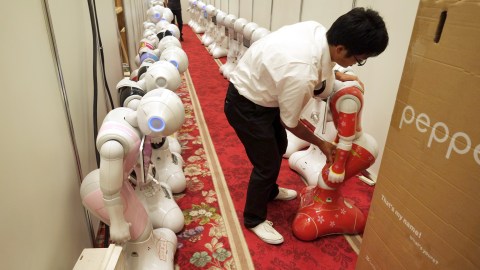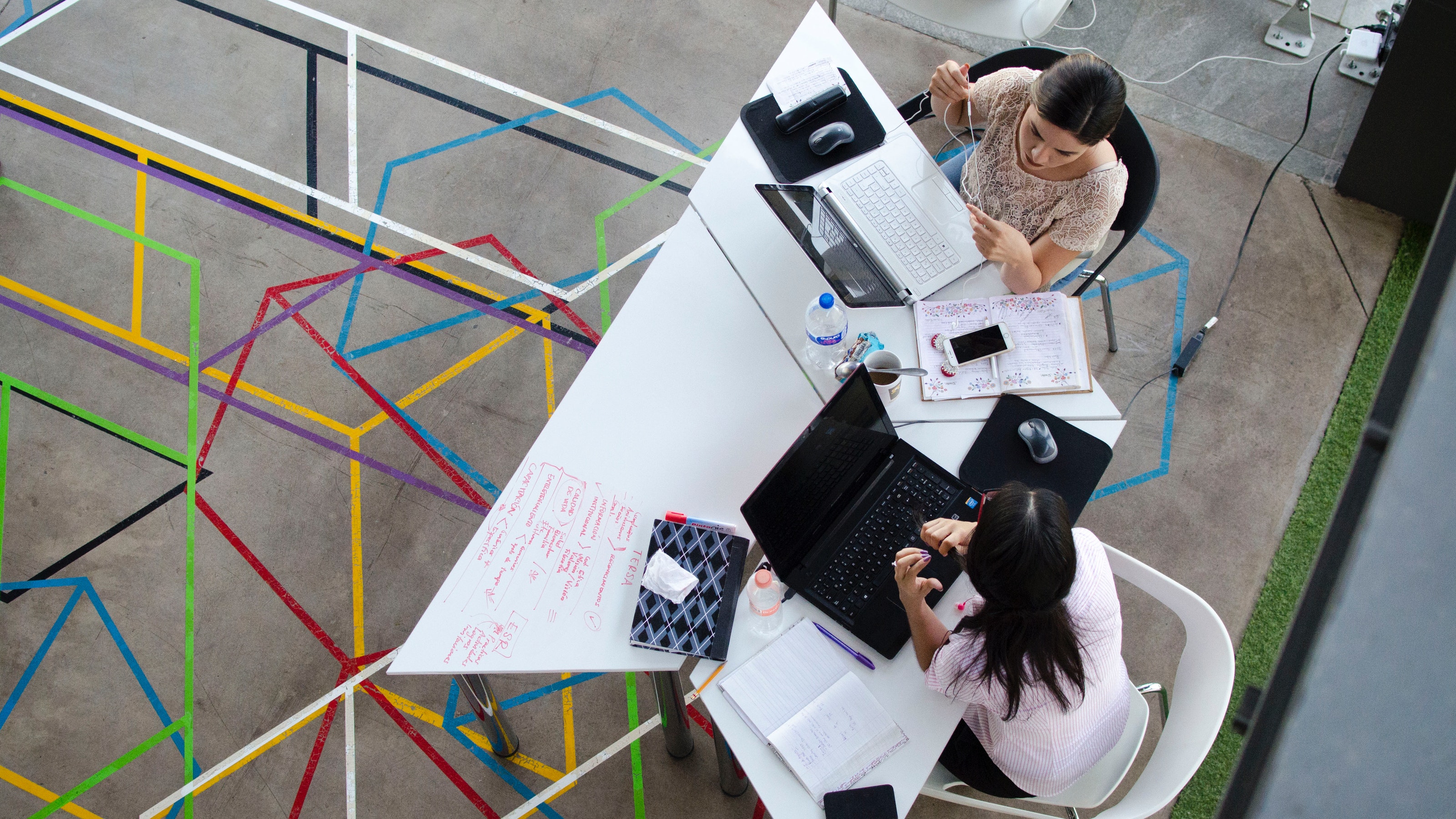A World Without Work: Robotic Automation Won’t Be as Bad as We Think

The average employed American works about nine hours a day, according to the Bureau of Labor and Statistics. Twice as many of them are unhappy at work than happy. The commute to and from work, which is also considered work, only deepens the misery. That’s why most of us are excited by the prospect of robots taking over the job market in the near future – even if we’re scared about being left jobless.
That fear is justified. IT research firm Gartner predicts that one-third of jobs will be replaced by software, robots, and smart machines by 2025. Our own Ray Kurzweil backs that up by insisting that robots will reach human levels of intelligence by 2029. Both projects are stark, and difficult to verify given the inconsistent advancement of artificial intelligence, as we’ve told you before. But the technology continues to advance in that direction, so some day in the near-ish future you should expect a machine to take over your job. IT expert Andrew MacAfee explains how – even for highly skilled workers:
As McAfee points out, we used to think that automating jobs would create a permanent underclass of unskilled cheap labor. Recent advancements in AI and deep learning are proving that to not be the case. It’s now simply a matter of time before a robot takes your job. If you want to prepare for that, you need to redefine what work means to you.
Right now, work signifies different things to different people. Economically speaking, work is a means of earning and distributing purchasing power. Personally speaking, work is a major source of identity, purpose, and even self-fulfillment. In a post-work world, work will be none of these things. Without work to give us meaning, we might drive ourselves nuts. In fact, if we don’t have work in our lives, we already drive ourselves nuts. 20 percent of Americans who’ve been unemployed for at least a year report having depression, according to this Gallup poll. That’s double the rate for working Americans. The Atlanticfound even more research, including reports that suggest “the explanation for rising rates of mortality, mental-health problems, and addiction among poorly-educated, middle-aged people is a shortage of well-paid jobs. Another study shows that people are often happier at work than in their free time.”
Combine that self-torture with our cultural tendencies to demonize people who avoid work and we’ve got a society that has no idea how not to work. “People who avoid work are viewed as parasites and leeches,” John Danaher of National University of Ireland told The Atlantic. “Perhaps as a result of this cultural attitude, for most people, self-esteem and identity are tied up intricately with their job, or lack of job.”
That’s only going to get worse when robots do all the work.
As The Guardian reports, we’re not good at coping with that now:
Labour [sic] markets have coped [with robotic automation] the only way they are able: workers needing jobs have little option but to accept dismally low wages. Bosses shrug and use people to do jobs that could, if necessary, be done by machines. Big retailers and delivery firms feel less pressure to turn their warehouses over to robots when there are long queues of people willing to move boxes around for low pay. Law offices put off plans to invest in sophisticated document scanning and analysis technology because legal assistants are a dime a dozen. People continue to staff checkout counters when machines would often, if not always, be just as good. Ironically, the first symptoms of a dawning era of technological abundance are to be found in the growth of low-wage, low-productivity employment.
James Manyika of The White House Global Development Council agrees, and explained the nuts and bolts of it to us here:
As a society, we need to figure out how to live without work – not just for our sanity and self-esteem, but for the future of our species. There are tons of benefits to being a post-work society. The biggest immediate benefit is that we can reinvest the time we spend at work toward pursuits that make us happier. According to research out of Stanford, families that spend more time together experience a higher degree of happiness and life satisfaction that people who don’t. “Researchers [at Harvard] have found that having close relationships is the number-one predictor of happiness, and the social connections that a work-free world might enable could well displace the aimlessness that so many futurists predict,” The Atlantic reports.
Without work, we could finally fix our educational system and make it work for every single child. “The primary purpose of the educational system is to teach people to work. I don’t think anybody would want to put our kids through what we put our kids through now,” Gray told The Atlantic. Education may become a one-on-one approach that’s a best fit for every child instead of a factory pumping out future workers.
We could also make strides to end income inequality. Without work to define and distribute income, it could be distributed by the state “through the payment of a basic income, for instance, or direct public provision of services such as education, healthcare and housing. Or, perhaps, everyone could be given a capital allotment at birth.,” The Guardian speculates.
Best of all, we can find deeper, meaningful ways of contributing to the world around us. “If greater numbers of people were using their leisure to run the country, that would give people a sense of purpose,” Randolph Trumbach of Baruch College told The Atlantic.
But all of those options will only be possible if we figure out how to make them happen. And if we’re going to do that we need to do it now, before we’re thrust into it. If we don’t, “pushing people out of work will simply redirect the flow of income from workers to firm-owners: the rich will get richer,” as The Guardian puts it.
In a post-work world, that outcome might spell disaster.





